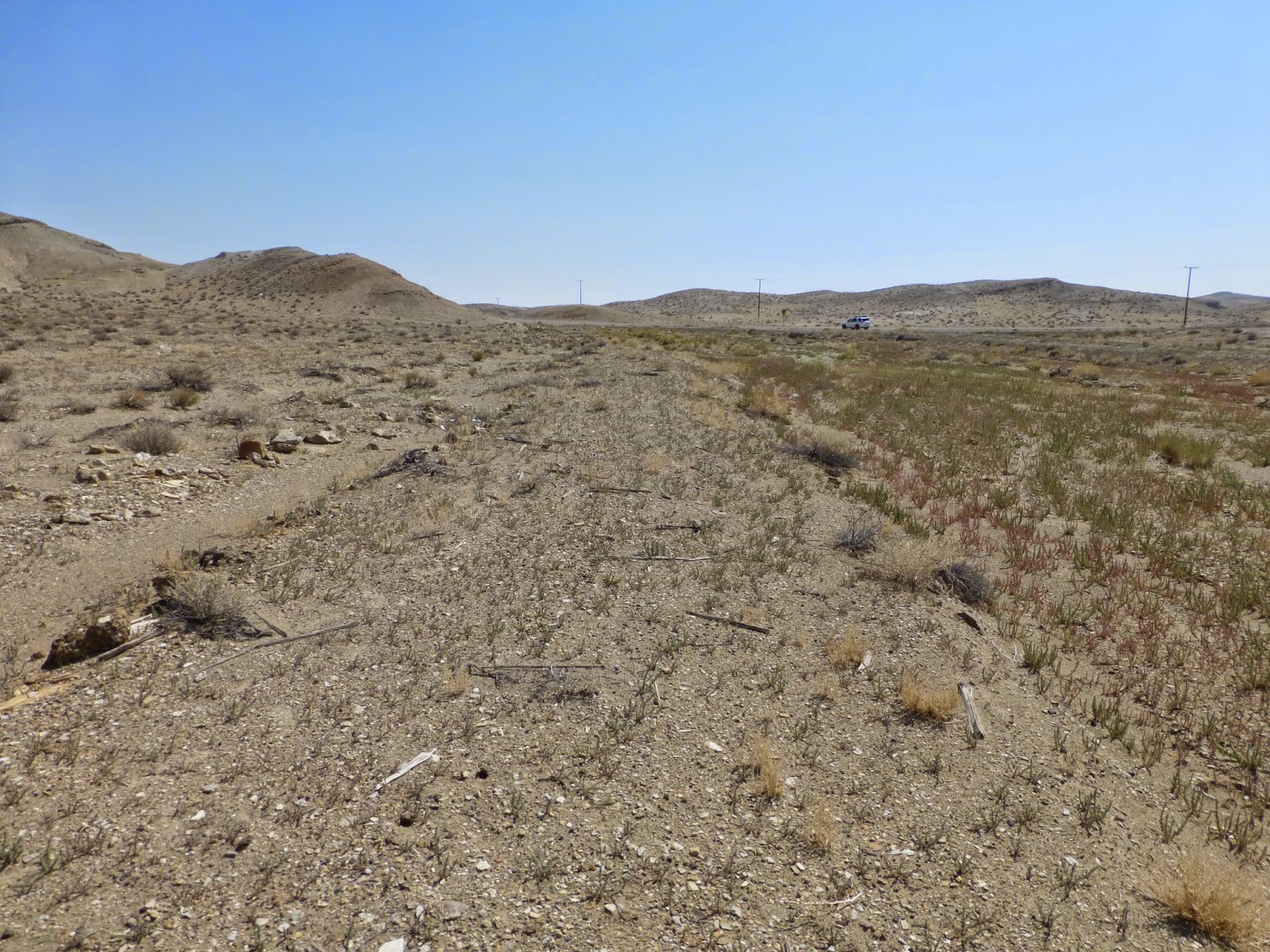…from the Pre- to Recent History tour of Central Nevada and Utah
There was a time in our
not-too-distant past when a railroad was the ideal means to get people and
stuff wherever the people or the stuff needed to be. After the rails tied our coasts together in 1869 until about
the beginning of the Second World War, hiring cheap labor to grade a roadbed,
toss down some ties and hammer steel ribbons into place proved to be both
economical and efficient. Good for
the country and really good for the merchant/banker/capitalists
who fronted the operations.
Once the initial line of Union/Central Pacific was complete,
short lines spurred off in all directions linking timber, minerals, cattle,
produce and people to the main line.
Other routes simply started some somewhere and ended somewhere else,
never quite hooking into the cross-country right-of-way.
Perhaps that was the case with the Tonopah and Tidewater.
Tonopah, Nevada, to the casual
passer-through, appears to be just a threadbare small town at the intersection
of two desolate US highways out in the middle of a barren collection of rock
outcrops, dried lake beds and sage.
Back in its hey-day, however, when early mineral extraction drove the
economy, rails were necessary to move ore to mill.
Dad was a desert rat. High Schooling in Barstow, California,
after an unsuccessful half semester at the University of California, Berkeley
he took a job laying steel on an extension of the Tonopah and Tidewater
Railroad. “Tampin’ ties on the T
‘n’ T,” as he called it.
“I never belonged at Cal,” he said. “I was just a kid from the desert who
didn’t know much of anything.”
The year was roughly 1938. Dad and a gang of others were employed to hammer spikes into
wooden ties advancing the rail line toward its goal. Until the war came along.
One day, the gang boss called a halt and soon, the newly
laid rails were pulled and shipped out on the diminishing line. The war effort. Munitions. It was as if the railroad was a serpent that had to devour
itself.
What is left is a graded right-of-way
– one that, 80 years later – is slowly dissolving into the desert floor.
Although there appears to be nothing left – you have to look
hard to even spot the raised gradient – along its path one can find, rusted
cans, flinders of wooden ties, iron scraps and spikes – feebly rusting spikes –
half buried in a busted gravel ballast…
…spikes possibly driven by my old man.
o0o
Notes:
Information on the Tonopah and Tidewater may be located at: http://www.abandonedrails.com/Tonopah_and_Tidewater_Railroad
When in Tonopah, consider, as did Jack Dempsey and Teddy
Roosevelt, staying at the historic Mizpah Hotel. http://www.mizpahhotel.net/ While you’re
at it, enjoy a little Cline Cellars (Sonoma County, CA) wine with dinner.
© 2014
Church of the Open Road
Press






No comments:
Post a Comment